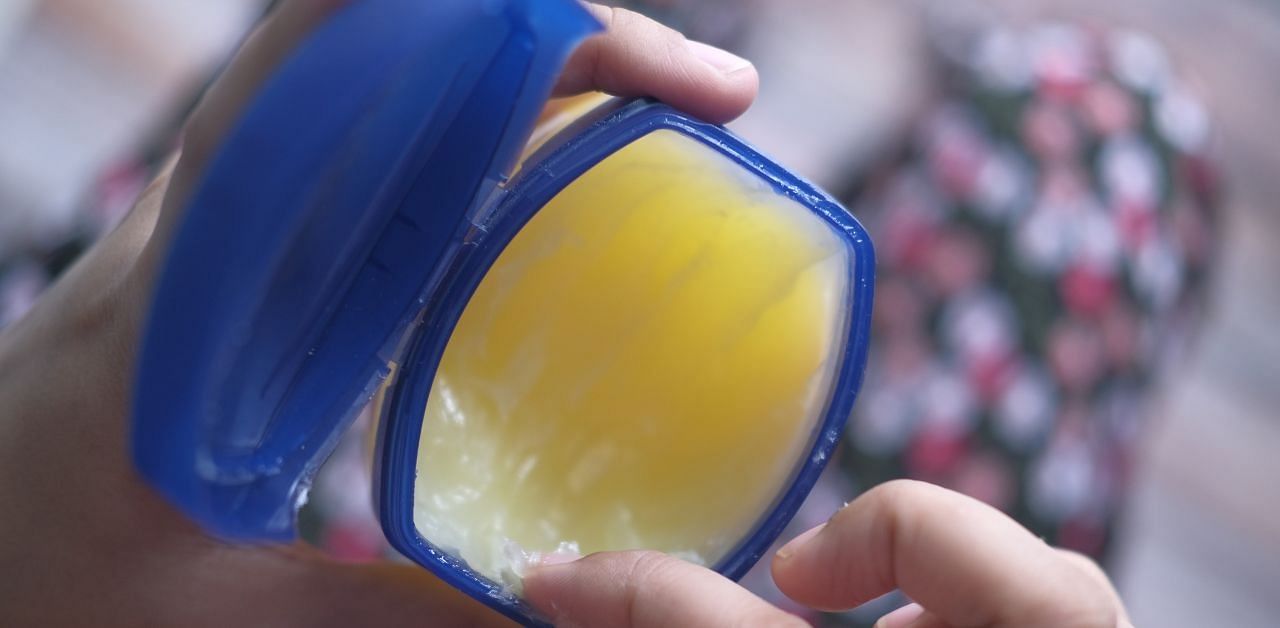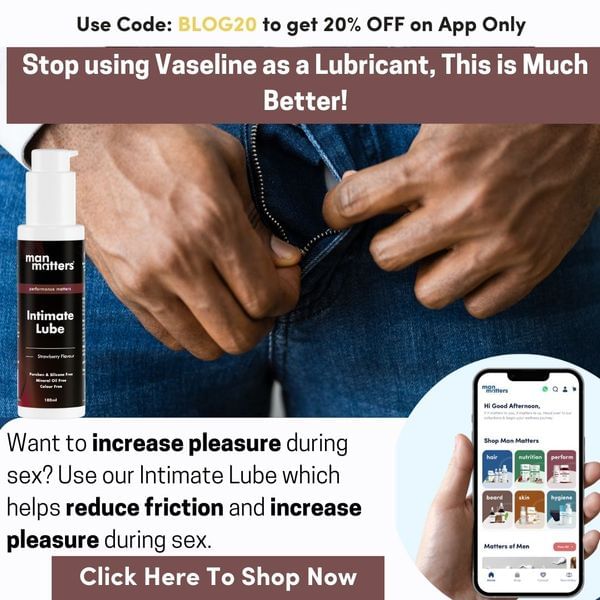Can Vaseline Be Used as a Lubricant? Is It Safe? ~ Answered by a Sexologist
Looking for a lubricant for sex? Can vaseline be used as lubricant? Keep scrolling to learn more about vaseline as a lubricant.

Vaseline, also known as petroleum jelly, is a petroleum-based ointment. It's smooth, soft, and sticky. It can also easily warm up in your hands. Vaseline appears to be an excellent lubricant for sex. The truth is that there are numerous better alternatives. Vaseline should only be used if you're in a pinch and don't have another option.
Discover why Vaseline isn't the best lubricant for sex and what you should use instead.

Can Vaseline Be Used as Lubricant?
Vaseline is only for "external use," according to the product's health and safety warning. Vaseline was neither designed nor marketed as a sexual lubricant by its creators. Women who used petroleum jelly as a sexual lubricant had a higher risk of developing bacterial vaginosis than those who used other products and methods, according to a 2013 study involving 141 women from the United States.

What Does Research Say?
Sex without lubricant can be uncomfortable. Friction with dry skin can be unpleasant, if not painful. Friction during intercourse can also cause tiny tears in the vaginal, penis, or anus skin. This raises your and your partner's chances of contracting a sexually transmitted infection (STIs).
Vaseline is not a good lubricant for sex. It can, however, be used if no other options are available. Keep the following factors in mind if you decide to use the thick jelly as lube:
1. It Has Staying Power
Petroleum-based lube may last longer and dry out less quickly than water-based lube. That, too, has a drawback. After sex, Vaseline can be difficult to clean or wash away. It may take several days for the lube to completely leave your body. So if you use vaseline as lube, it may take more time to clean up than a regular water-based lubricant.
2. Vaseline May Increase Your Risk of Infection
Because the jelly sticks around longer than other lubes, it may invite bacteria to set up an infection. According to one study, women who use petroleum jelly inside their vaginas are 2.2 times more likely than women who do not use petroleum jelly to test positive for bacterial vaginosis.

3. Petroleum Jelly Weakens Condoms
You cannot use Vaseline if you intend to use latex or polyurethane condoms. Petroleum jelly is incompatible with latex and weakens these types of condoms. During sex, the condom may break or tear, resulting in unintended pregnancy or STIs.
4. Vaseline is Messy
Petroleum-based products may leave greasy stains on sheets or clothing. Protect your sheets or any fabrics you may come into contact with if you intend to use Vaseline as lube.
Also Read: Shower Sex 101: Best Shower Sex Positions That You'll Love

Better Alternatives than Vaseline as lube
Rather than going for vaseline as lube, you should opt for a water-based lube. Personal lubricants intended for use during sexual intercourse are your best lube option. These are typically water- or silicone-based. These are typically made of water or silicone. They are made for the delicate tissues and environments of the vagina or anus. As a result, they are less likely to spread infections. They're also less likely to irritate or itch.
Personal lubricants are intended to be extremely effective during intercourse. They're slippery and smooth, with little resistance during sex.
As an added bonus, these water- and silicone-based lubes are condom-safe. They will not deteriorate the condom's material. Keep a bottle of lube and condoms on hand to be ready for any planned or unplanned events. According to a 2013 review article, water-based lubricants are generally more compatible with condoms.
If you’re looking for the safest type of lubricant, your best option is likely a water-based lubricant, like ManMatters intimate lube. Water-based lubes are a good choice for both masturbation and intercourse.
Some personal lubricants contain additives, such as flavours or ingredients that cause tingling or numbness. Check to see if you or your partner are allergic to these additives before using them. The best way to do this is to rub some of the fluid inside your elbow. Allow a few hours. If you don't notice any signs of irritation or sensitivity, you should be fine when the temperature rises between the sheets.

Summing up
Although Vaseline can be used as a sexual lubricant, it is not the best choice. Vaseline can harm latex condoms, trap bacteria that can cause infections, and stain clothing and bedsheets.
Instead of using vaseline as lube, people should think about using a high-quality, water-based lubricant. These products are specifically designed by manufacturers to enhance sexual pleasure without causing condom damage.
References
- Shreena Ramanathan, July 2013; Factors Associated with Use of Latex Condom-Compatible Lubricants by Men Who Have Sex with Men in India: Implications for HIV Prevention - https://www.ncbi.nlm.nih.gov/pmc/articles/PMC4475579/
- Scott Geibel, July 2013; Condoms and condiments: compatibility and safety of personal lubricants and their use in Africa - https://www.ncbi.nlm.nih.gov/pmc/articles/PMC3708353/
- Intravaginal Practices and Risk of Bacterial Vaginosis and Candidiasis Infection Among a Cohort of Women in the United States - https://ovidsp.dc1.ovid.com/ovid-a/ovidweb.cgi?T=JS&PAGE=fulltext&D=ovft&AN=00006250-201304000-00012&NEWS=N&CSC=Y&CHANNEL=PubMed

